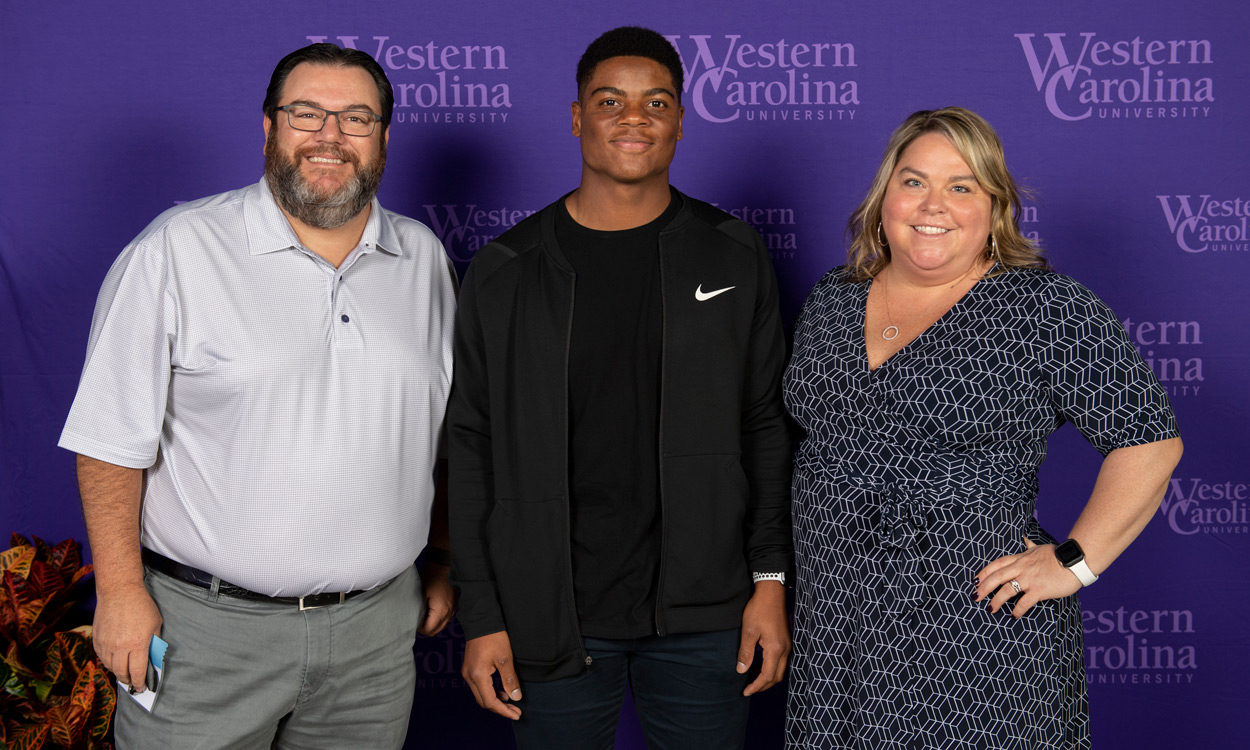





The View from Here
By Brian Boyer
A few words of wisdom for incoming freshmen
Every summer, I give advice to incoming freshmen as they prepare to begin their college
careers. I encourage them to take this advice for what it is worth, but I also tell
them that WCU staff members are excited to welcome new students “home” every year
— pandemic or no. Here’s some of that advice:
New students must complete online courses prior to the start of each semester on alcohol
education, sexual assault prevention and diversity, equity and inclusion. These topics
are all extremely relevant and important. I encourage you to take them seriously.
Look over the Community Creed. Remember, as Catamounts, this is what we stand for. You will be held to the Creed
whether you have read it or not — better to read it now.
Think about how you would like to say “goodbye” to your parents/guardians/special
people. Don’t save those emotions for move-in day. Write a letter, get a card or sit
down and talk to them. Show your appreciation for getting you this far, and let them
know you’ll miss them. Trust me, you’ll miss them more than you think.
I’m not going to tell you to break up with your boyfriend/girlfriend/partner — although
that Orientation speech from Sam Miller (vice chancellor for student affairs), urging
against bringing a sandwich to a smorgasbord, is funny. You do need to think about
how that relationship will work when it turns long distance. If you get pissed off
every time your boyfriend/girlfriend/partner “likes” a picture of someone on Instagram,
do yourself a favor and end it.
Do you have younger siblings? I’ve seen younger siblings struggle when you leave for
college. Get a card, write a note and mail it to them after a week or so. Let them
know you’ll miss them. They’re likely looking up to you more than you realize.

Think about your relationship with alcohol — or any substance, for that matter. Believe
it or not, everyone in college does not drink. We’re not here to judge you. Ultimately,
you must make your own decisions. Just be ready to be held accountable for those choices.
Email your professors, introduce yourself and let them know you look forward to their
classes. They work hard to prepare lectures, grade papers and teach. Let them know
you appreciate it. At the end of the semester, it won’t hurt your grade when they
see you have shown genuine interest in the class.


Be prepared to handle your own problems. It is OK to vent to your parents/guardians,
but don’t expect them to fight your battles. You are an adult and should act accordingly.
Be yourself. Don’t worry about impressing anyone else or worry about what others think.
No one can be you better than you can. Just worry about being the best person you
can be.
Do not miss class. Ever. If you absolutely have to, the responsible thing to do is
notify your instructors, let them know what’s going on, apologize and ask about what
you missed. Some classes will not have an attendance policy. But don’t miss class.
Ever. Half the battle is being there.

The other half of the battle is hard work. You’ll get points for attendance in some
classes, but you won’t pass or get a decent grade just for showing up. Engage in class,
speak up, show interest and take notes.
Care as much about your classes on the first day as you do on the last. Right before
finals, people suddenly become concerned about grades and start to freak. Have that
kind of concern for each of your classes on Day One.
You can’t care about the consequences of your behavior after you get caught. Don’t
want your parents to know you got caught drinking alcohol or smoking pot? Don’t do
it. So many students cry over their parents finding out about them getting in trouble.
But obviously, you didn’t care enough about that before, because it did not change
your behavior.
Get involved. Statistics don’t lie — you’ll be happier and more successful if you
get engaged in your college experience. Greek Life? Want to be an RA? Japanese Anime Society? Video Gaming Club? There really is something for everyone.

Come with an open mind. You’ll be exposed to many things with which you may not agree
— religion, sexuality, politics — and that’s OK. You can disagree and still be respectful.
Finally, remember you’ve chosen to come to a university that genuinely cares about
you and your experience. We think you made a good choice. We’re 100 percent in your
corner, pulling for you. You got this!
And even when you don’t, we got you!
Brian Boyer, residential case manager in WCU’s Department of Residential Living, Is the 2020 recipient of the university’s Paul A. Reid Distinguished Service Award for Administrative Staff in recognition of his commitment to student success.

